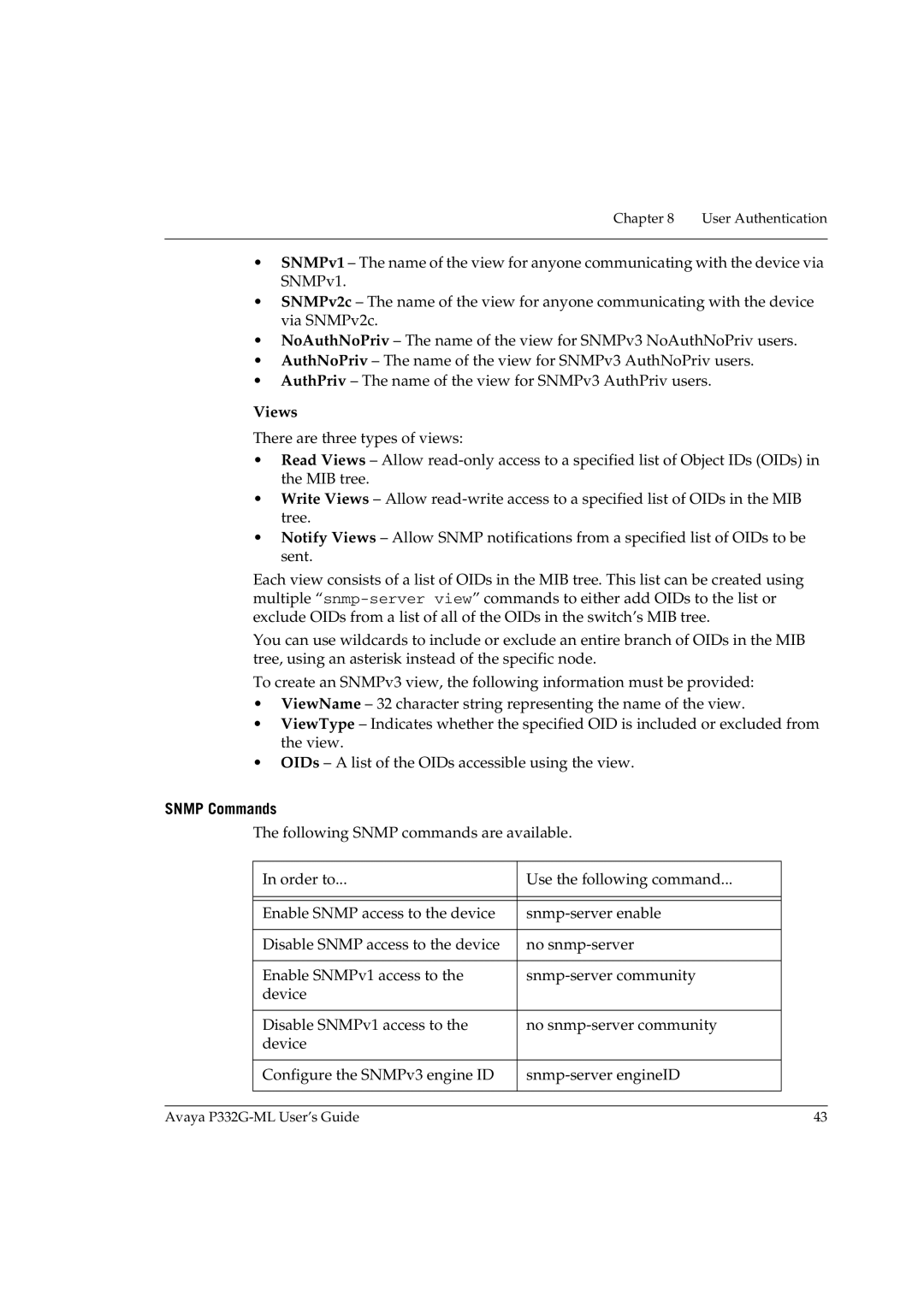Chapter 8 User Authentication
•SNMPv1 – The name of the view for anyone communicating with the device via SNMPv1.
•SNMPv2c – The name of the view for anyone communicating with the device via SNMPv2c.
•NoAuthNoPriv – The name of the view for SNMPv3 NoAuthNoPriv users.
•AuthNoPriv – The name of the view for SNMPv3 AuthNoPriv users.
•AuthPriv – The name of the view for SNMPv3 AuthPriv users.
Views
There are three types of views:
•Read Views – Allow
•Write Views – Allow
•Notify Views – Allow SNMP notifications from a specified list of OIDs to be sent.
Each view consists of a list of OIDs in the MIB tree. This list can be created using multiple
You can use wildcards to include or exclude an entire branch of OIDs in the MIB tree, using an asterisk instead of the specific node.
To create an SNMPv3 view, the following information must be provided:
•ViewName – 32 character string representing the name of the view.
•ViewType – Indicates whether the specified OID is included or excluded from the view.
•OIDs – A list of the OIDs accessible using the view.
SNMP Commands
The following SNMP commands are available.
| In order to... | Use the following command... |
|
|
|
|
|
|
|
|
|
| Enable SNMP access to the device |
| |
|
|
|
|
| Disable SNMP access to the device | no |
|
|
|
|
|
| Enable SNMPv1 access to the |
| |
| device |
|
|
|
|
|
|
| Disable SNMPv1 access to the | no |
|
| device |
|
|
|
|
|
|
| Configure the SNMPv3 engine ID |
| |
|
|
|
|
|
|
|
|
Avaya | 43 |
